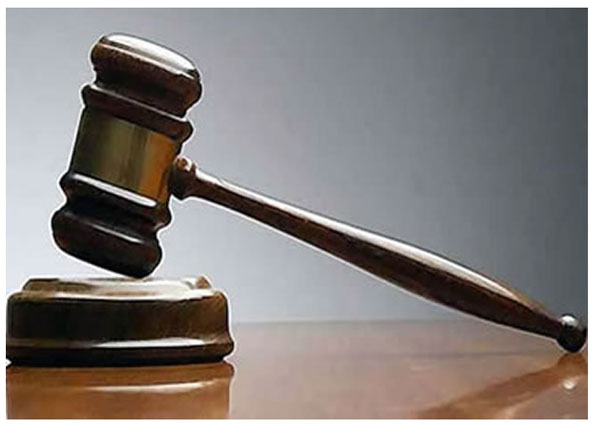
Kampala, Uganda | THE INDEPENDENT | The Constitutional Court has dismissed an application in which Dr. Sylvester Onzivua, a pathologist, challenged a two-year time frame within which one can sue the government. A panel of five Constitutional Court Justices unanimously ruled that there was nothing unjust or illegal about the provisions of the law that Dr. Onzivua was challenging for being inconsistent with the Constitution.
The Justices include Cheborion Barishaki, Catherine Bamugemereire, Irene Mulyagonja, Monica Mugenyi, and Christopher Gashirabake. On December 28, 2012, Dr. Onzivua was arraigned in court for alleged abuse of office contrary to section 11(1) of the Anti-Corruption Act, and conspiracy to commit a felony contrary to Section 390 of the Penal Code Act. He was, however, acquitted of both offenses.
These charges stemmed from his decision to attempt to fly out samples from the late former Butaleja Woman MP, Cerinah Nebanda following a request from parliament for a conclusive autopsy. Nebanda had died under unclear circumstances. Dr. Onzivua was arrested at Entebbe International Airport with the samples on his way to South Africa to conduct a conclusive post-mortem exercise.
He was taken to court, charged, and later acquitted. As a result, he filed a case before the High Court against the Attorney General (the State), pleading unlawful arrest and detention, and malicious prosecution. However, on April 25, 2016, when the matter came up for a hearing, the Attorney General raised a preliminary objection that the petitioner’s cause of action in respect of unlawful arrest and illegal detention was time-barred.
He argued that the law provides for filing claims against the government within two years from the day the alleged violations took place. In response, Dr. Onzivua argued that section 3(1)(a) of the Civil Procedure and Limitation (Miscellaneous Provisions) Act, Cap 72, which provides preferential treatment for the State over Ugandan citizens, is no longer good law and should be construed in conformity with Article 274 of the Constitution.
The Attorney General asked the court to dismiss the petition with costs on the grounds that there are no questions for constitutional interpretation, and therefore, the reference is devoid of merit. “It is argued that since the petitioner correctly points out that the cause of action arose upon his release in December 2012, it cannot be suggested that he was under any disability that prevented him from filing the suit within time,” said the Attorney General. The court heard that the law of limitation strikes a balance between the enforcement of an action and the discouragement of ‘stale’ actions.
In their decision, the Justices ruled that Articles 23(1) and (7) and 29(2)(a) and (b) of the Constitution, invoked by Dr. Onzivua to relate to the merits of his claim in the High Court on the right to personal liberty, which is still pending, have no connection with the question raised for interpretation regarding the constitutionality of a differential limitation period between the State and private persons, which is six years.
The court concurred with the Attorney General that the government cannot be classified as a person for purposes of Article 21(1) of the Constitution, which provides for equality and freedom from discrimination. “The Respondent, on the other hand, argues that the State or Government cannot be classified as a person within that context so as to be accorded equal treatment as an ordinary litigant under the impugned Act”, reads the judgment.
Lady Justice Mugenyi, who wrote the lead judgment indicated that in the absence of a comprehensive statutory definition of the term ‘Government’ in Uganda and considering its definition in Black’s Law Dictionary as ‘the sovereign power in a nation or state,’ she would adopt the foregoing approach to find that the term ‘person’ does not include the Sovereign, Government, or the State.
“On that premise alone, I would find no violation of either that clause or Article 20(2) of the Constitution, both of which are grounded in the notion of equality of all persons before the law. I find no violation of Article 20(1) either, steeped as it is in the rights of individual persons, which Government is not. I am satisfied, therefore, that section 3(1)(a) of the Civil Procedure (Miscellaneous Provisions) Act is neither inconsistent with Article 21(1) of the Constitution nor is it bad law in that context,” added Mugenyi. The court ordered each party to bear its own costs.
****
URN
 The Independent Uganda: You get the Truth we Pay the Price
The Independent Uganda: You get the Truth we Pay the Price



How long does it take for a traumatised person to recover ?
In the event that 9t can take la period , covering more than 36 months
Where does he seek redress from?